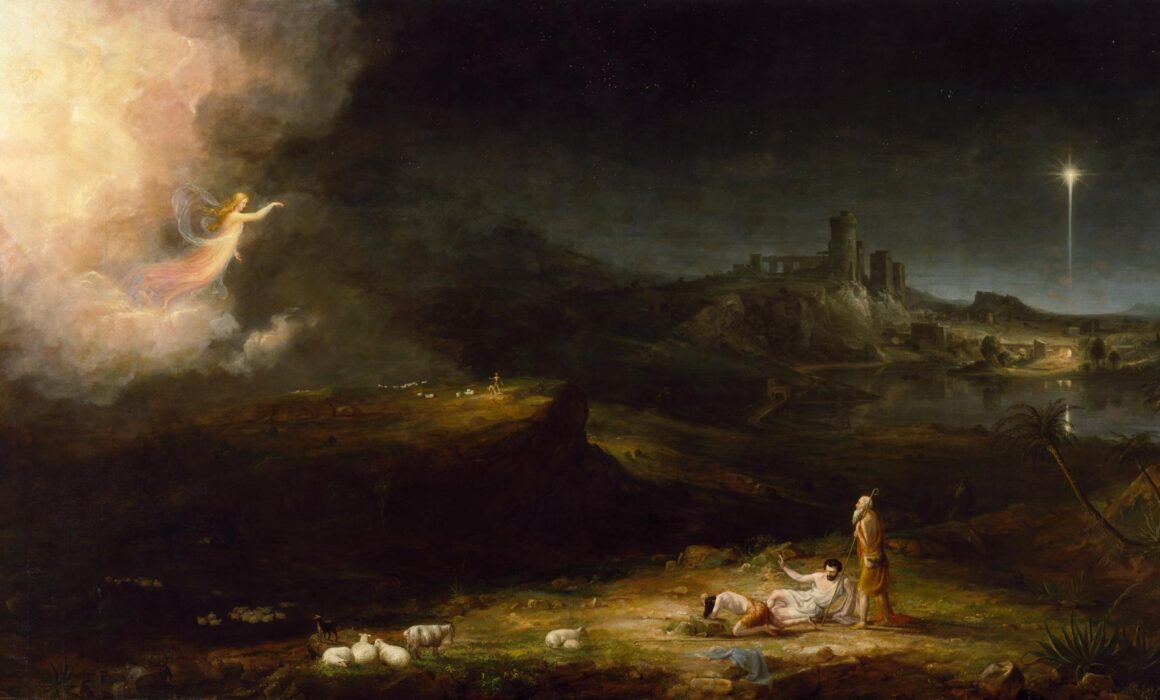Peace, Peace, and There Was Peace
As Christmas comes, one topic comes to dominate the minds of every American: what gifts should I buy for whom? We ask ourselves how much we can afford, what things might this or that friend or family member find useful, and to those who we are especially close to, what present might they find, above all else, meaningful.
In America, and largely throughout the West since the Middle Ages, the practice of gift giving has largely been considered an expression of the classical virtue of magnanimity. It is a lovely virtue, though a quite pagan virtue. Magnanimity, or ‘great-souled-ness,’ means the expression of one’s superiority through generosity and mercy. It is something done not in spite of one’s means, but to demonstrate one’s means. It is to show kindness to those who have less specifically because you happen to have more; and it shows your kindness particularly well in that you are disposing of your surplus not on your own desires, but on others’ needs.
This notion of ‘magnanimity,’ and with it our culture of gift giving may seem a bit self-centered, if not even prideful. And yet, it is how we tend to think of giving gifts. After all, who is it that we tend to give gifts to the most? We give presents, whether on Christmas or at birthday parties to children. Once one grows up, one is supposed to have ‘grown out of’ expecting presents. Why? Because we give presents to those who cannot buy for themselves: kids. Adults are expected to be able to provide for themselves, and therefore do not need, or have ‘grown out of’ the reception of presents.
In the time of Jesus, and throughout most of the rest of the world, gift giving served a very different purpose. As opposed to being something that loving people bestow on the lesser beloved, it is something given to unloving people in order to express the desire for peace. If one reads about the travels of ancient tradesmen on the Silk Road, or to the Far Northern trading cities, an extremely important part of the journey was to bring thousands of pounds of goods to give as gifts to the various princes and chieftains and lords of lands where one might want to spend the night in order to ‘buy their peace’ through the expression of non-violent intentions through the bestowal of costly presents.
For us, a gift expresses our generosity to the needy. In olden times, a gift expressed our desire for peace with those who are greater.
See then why it is a great confession for the Three Magi to bring gold, frankincense, and myrrh to the Christ-child. They are not merely being generous to the child. They are recognizing this one, born in a manger, to be far greater and more powerful than themselves, or the kingdoms they represent. They confess this child to be something much like God. And by giving gifts, they admit that they are not at peace with this God because of their sin, but deeply desire this peace, and in it, their forgiveness.
We give gifts on Christmas because God Himself gave a gift to us. By taking on our flesh and deifying it by His union with it, He then offers this person and flesh of Jesus back to us in the Incarnation, to make peace with fallen humanity, though He be greater than us, that in only a few decades, that human body and person may be offered back to the Father on the cross by the Son: a Christmas present to man, made an Easter gift to God; and why? That there might be peace between heaven and earth, between the powerful and the weak, between God and man.
Do not the angels sing for this?
‘Gloria in excelsis Deo, et in terra pax hominibus bonæ voluntatis.’
‘Glory to God in the highest, and on earth, good will, peace to man.’



